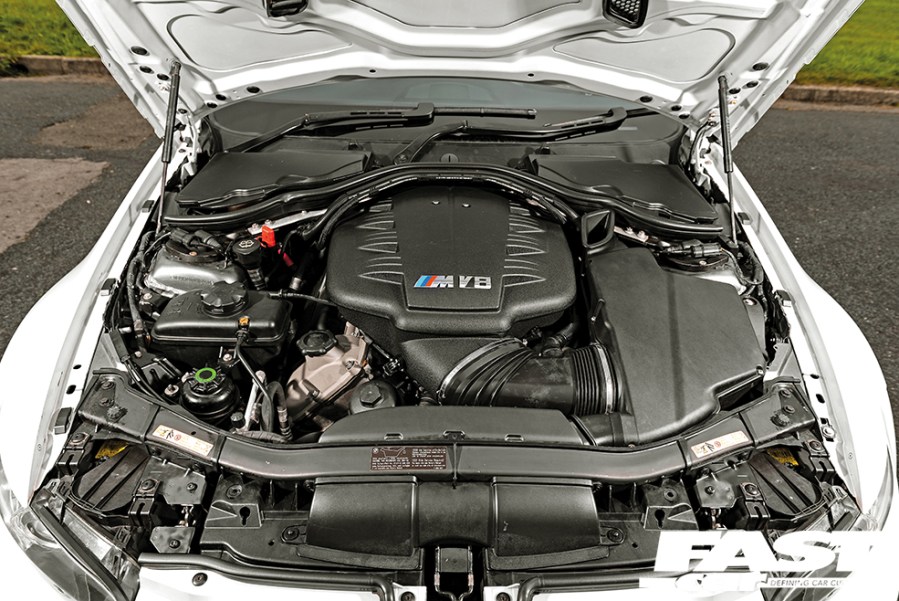Introducing the Keys Behind the Power of the BMW Engine
Introducing the Keys Behind the Power of the BMW Engine
Blog Article
Unveiling the Intricacies of Next-Generation Power Units: a Deep Dive Into Advanced Engine Styles and Advancements
As we stand on the precipice of a brand-new era in transportation, the complexities of next-generation engine layouts beckon us to discover the cutting-edge modern technologies and advancements that promise to redefine the driving experience. Diving deeper right into the realms of emission control, intelligent engine management systems, and the horizon of power system development, we locate ourselves on the cusp of an improvement that promises to improve the landscape of movement as we understand it.
Development of Engine Materials

The change in the direction of progressed engine products has actually also enabled engineers to develop engines with greater power outputs while preserving fuel efficiency requirements. For instance, making use of light-weight materials reduces the total weight of the engine, leading to boosted gas economy and reduced discharges. Additionally, improvements in products technology have permitted for better thermal administration within engines, leading to enhanced dependability and durability.
Turbocharging and Supercharging Technologies
How do Turbocharging and Supercharging Technologies reinvent engine efficiency and performance in contemporary cars? Supercharging and turbocharging are innovations that dramatically improve engine performance by boosting the quantity of air intake right into the combustion chamber. Turbocharging attains this by making use of a turbine driven by exhaust gases to pressurize the consumption air, while supercharging makes use of a belt- or chain-driven compressor to attain the very same result.
These modern technologies allow smaller sized, more fuel-efficient engines to create power equivalent to bigger ones, called downsizing. Forcibly more air right into the cyndrical tubes, supercharging and turbocharging boost combustion efficiency, resulting in boosted horsepower and torque output without a substantial rise in engine size. This leads to much better velocity, lugging capacity, and general driving performance.
Moreover, turbocharging and turbo charging contribute to boosted fuel performance by allowing the use of smaller engines that consume much less gas under normal driving problems - bmw engine. This mix of improved efficiency and effectiveness has made turbocharging and turbo charging integral elements of numerous modern engine designs
Emission Control and Environmental Impact
With enhancing worldwide worries relating to air top quality and environmental sustainability, the execution of emission control technologies in vehicles plays a critical function in minimizing harmful pollutants launched into the atmosphere. Modern cars are furnished with sophisticated exhaust control systems that aid minimize the ecological influence of automobile operations. Catalytic converters, for circumstances, are designed to convert toxic gases such as carbon monoxide, nitrogen oxides, and hydrocarbons into less damaging compounds like carbon dioxide and water vapor.
Moreover, advancements in engine modern technology, such as the combination of exhaust gas recirculation systems and careful catalytic reduction, have considerably contributed to lowering emissions. These modern technologies function in tandem to maximize burning effectiveness and reduce the release of damaging contaminants into the air. Additionally, the growth of crossbreed and electric cars represents an important step towards lowering the total environmental footprint of the transport market.
Intelligent Engine Administration Systems

Moreover, these systems enable lorries to satisfy stringent exhausts requirements without compromising performance, giving a much more environmentally pleasant driving experience. The assimilation of expert system and artificial intelligence capacities in engine management systems proceeds to push the more info here borders of what is feasible, resulting in more enhancements in performance, integrity, and overall vehicle performance. bmw engine. As automobile technology advances, intelligent engine monitoring systems will play a vital duty in shaping the future of transportation in the direction of an extra sustainable and effective instructions
Future Trends in Power Device Advancement
As intelligent engine management systems pave the way for enhanced control and optimization in modern vehicles, future trends in power unit development are poised to redefine the landscape of automotive propulsion innovations. These alternate power sources offer enhanced performance and efficiency while straightening with rigid environmental policies.
Another significant fad is the assimilation of advanced products and making techniques. Light-weight products such as carbon fiber and aluminum are being utilized to lower general car weight, enhancing gas effectiveness and performance. Additionally, advancements in 3D printing and additive manufacturing are enabling the manufacturing of complex engine components with greater precision and sturdiness.
Additionally, expert system and artificial intelligence are playing a critical function in optimizing power system performance. These modern technologies enable real-time monitoring and flexible control, resulting in extra effective and reputable power distribution. Generally, future fads in power system growth are geared in the direction of efficiency, sustainability, and effectiveness, driving the automobile sector towards a brand-new era of propulsion modern technologies.

Conclusion
To conclude, the improvements in engine materials, turbocharging, discharge control, and intelligent administration systems have actually paved the means for next-generation power systems. visit here These innovations have not just improved efficiency and performance however additionally decreased ecological impact. As modern technology remains to progress, future trends in power system growth are likely to focus on more enhancing sustainability and optimizing power result. The intricate styles and innovations in modern-day engines showcase the ongoing development of auto technology.
Exploring the modern advancements in engine materials has been crucial in improving the efficiency and performance of contemporary engines. Over the years, the advancement of engine materials has actually played a critical function in pressing the borders of what engines can accomplish.The shift in the direction of read here advanced engine products has additionally enabled engineers to develop engines with higher power outcomes while keeping gas performance requirements.The application of intelligent engine management systems in contemporary lorries has transformed the way engines are managed and maximized for efficiency and effectiveness. By collecting information in real-time and examining it with innovative formulas, intelligent engine management systems can adjust to driving styles, ecological variables, and engine health to maximize power outcome while lessening fuel consumption and emissions.
Report this page